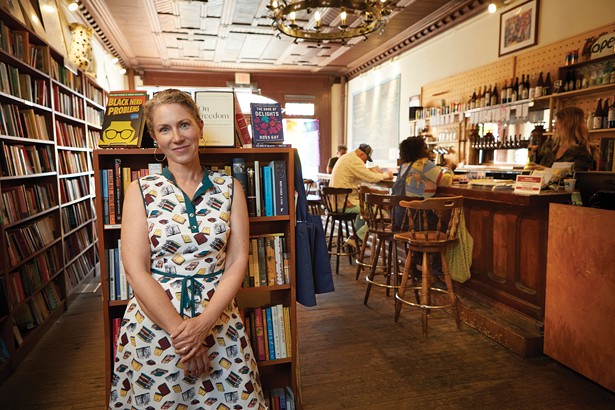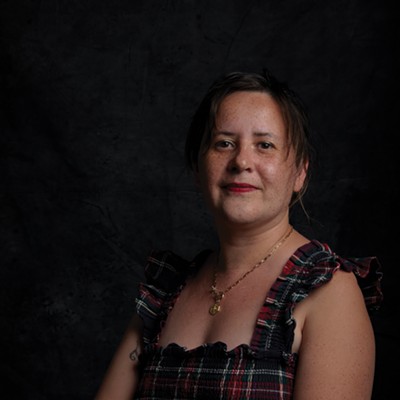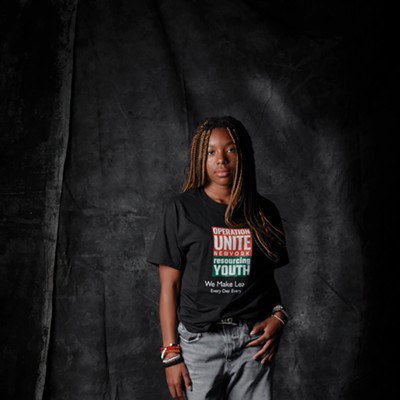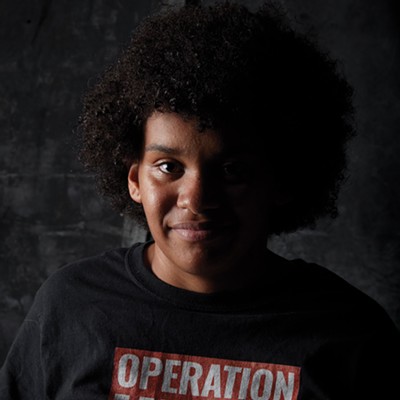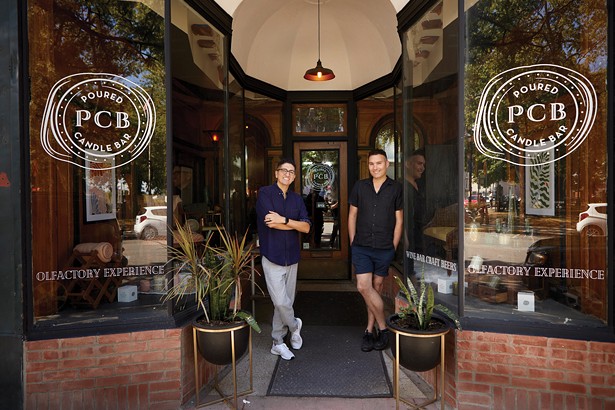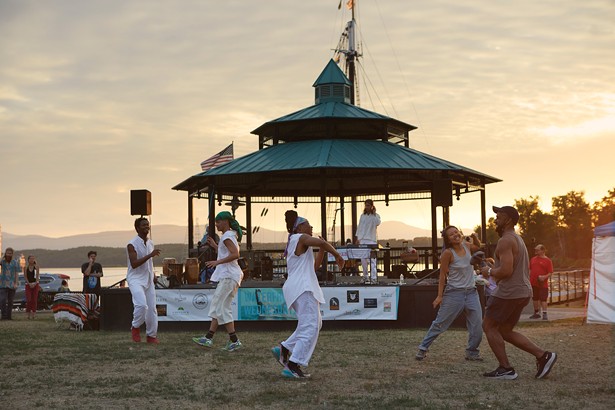
Originally inhabited by Mahican tribes and “discovered” by Henry Hudson in 1609, Hudson was colonized by the Dutch and English. Established as a trading port and whale-processing center by seasonal New Englanders, it developed into a major factory hub and one of New York’s largest cities during the 19th century.
When the newly dug Erie Canal diverted shipping routes to the state’s northwest region, away from the town, Hudson began a a half-century-plus run as the Northeast’s largest red-light district. After the decades of blight, in the 1980s and ’90s antique dealers and gallerists started opening in the abandoned storefronts of Warren Street and renovating rotting Victorians on Union and Allen streets.
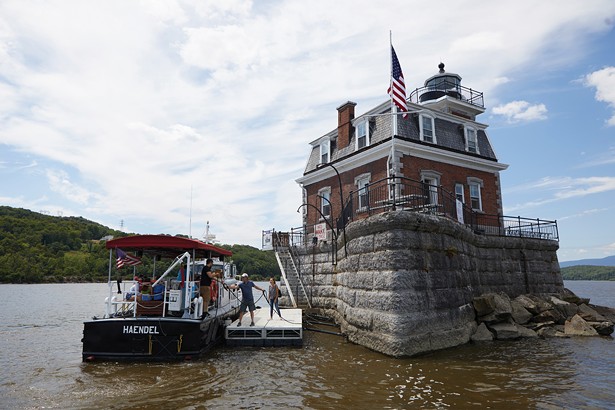
In the early 2000s, thanks to a group of citizen watchdogs, the construction of a proposed—and environmentally unsafe—cement factory was nixed (see the 2006 documentary Two Square Miles). By the 2010s, chichi restaurants and bed and breakfasts were popping up at a quickening clip, and larger numbers of downstaters, transported via Amtrak, had themselves “discovered” the town. Outside developers and landlords took note, low-income residents and artists started getting priced out, and activists and town officials attempted to get a grip on the changes. Then the pandemic hit. And now here things are.
So where, exactly, is “here”? What is the current state of Hudson?
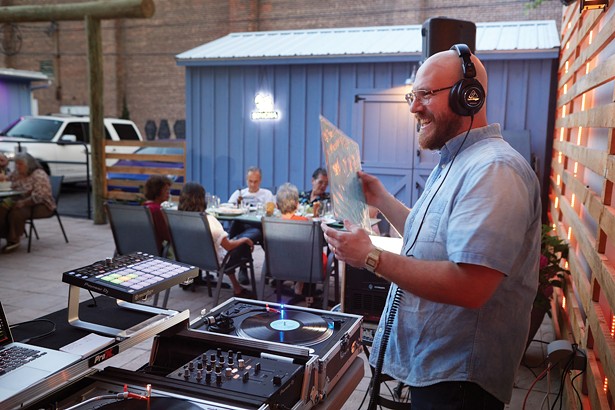
Shared Effort
“Hudson is thriving,” says third-term Common Council President Tom DiPietro, highlighting the success of the city’s 2020 summer Shared Streets program that permitted Warren Street businesses to utilize its sidewalks and parking spaces. “We actually did really well during the pandemic; the income from sales tax [via Shared Streets visitors] was through the roof. In general, things are really good even though it’s been a rough balance. The city recently put out a project query to develop city-owned properties into 150 new housing units and got back several responses, so we’ll be rolling out information and working to get support for [the plan that has been selected] soon. There are a lot of problems at the national level we can’t solve, but one thing at the local level that we can encourage is contributing more housing.”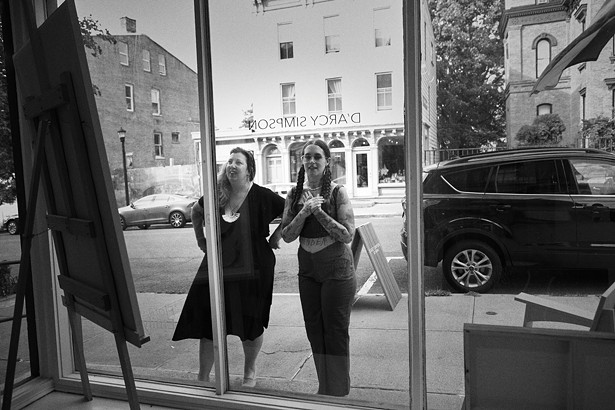
“Housing is definitely the biggest challenge that Hudson is facing right now,” agrees Kamal Johnson, the city’s first African American (and youngest-ever) mayor and a native Hudsonian who was elected to a second term in 2021. “We appointed a new full-time housing director to help address the situation, we recently secured a $500,000 grant from the state designed to help people with home repairs, and we’re currently applying for more housing grant funds. We also launched the Hudson Roots initiative, which supports low-income Hudson residents with funds for back rent, first month’s rent, and security deposits, and rental subsidies, along with optional case management and advocacy support for residents to seek and secure affordable housing.”
In a move that echoes recent actions taken by Woodstock, Kingston, and other area towns, Hudson passed legislation designed to serve as a check on the rapid increase of short-term rentals that has greatly contributed to the housing crisis in the city, where rents tripled between 2000 and 2019 and shot up 20 percent as downstaters fled north during the pandemic.
“[As per the law] a short-term rental property has to be owner occupied for a certain length of time [a minimum of 50 days per year, with a maximum of 60 rental days per calendar year, according to the law],” says Johnson. “We’ve been working on gathering online data and on better enforcing things, but from what we’ve seen there have been no new short-term rentals that have been opened [since the law went into effect]. We’re not seeking to eliminate short-term rentals; we just want to regulate them. We realize that Airbnb and similar websites help give some people an opportunity to earn added income that they need, so we don’t want to deny them that opportunity. We just don’t want that opportunity to come at the expense of the rest of the population.”
Contested Development

Not everyone has been enamored with the passing of the short-term rental regulations, however. “Hudson has zero economy besides tourism, so altering the rule on Airbnbs wasn’t a good decision,” maintains Peggy Polenberg, a prominent local real estate broker and a director on the board of the town-wide Hudson Eye multi-arts festival, which kicked off last month and runs through September 5.
Polenberg also mentions, however, that Hudson’s real estate market is even hotter and more exclusive now than it was when was in its already-amped-up, pre-pandemic levels. “For anyone thinking of buying in Hudson, I’d tell them that there’s not a lot of product here. If they see something they’re interested in they should come prepared to purchase—proof of funds, be pre-approved—and be ready to jump. I just sold a building on upper Warren Street to a Florida investor over FaceTime—sight unseen. It’s still a seller’s market.” One of the sellers Polenberg represents is developer Eric Galloway of the Galvan Foundation.
It’s difficult to talk about Hudson, especially when it comes to matters of housing, without mentioning the Galvan Foundation. Based in Manhattan, Galloway’s firm began acquiring buildings in town around the turn of the last century, and a February 2022 count numbered 86 properties, 30 of them unoccupied, with many boarded-up throughout Galvan’s ownership. (The company, founded by Galloway and his late partner Henry van Amerigan, has a website that promotes it as a philanthropic group “Achieving Just and Lasting Democracy for All.”) In such a small city, naturally, many Hudsonians—the mayor among them—live in Galvan-owned buildings.
The Galvan Foundation renovated the long-empty, historic State Street Armory to become the city’s expanded new library, an initiative that has been largely well received, and it’s currently seeking to move forward with three projects: the $15 million renovation of the former indoor tennis club at Seventh and State (a structure that its last owner, performance artist Marina Abramovic, had planned to make into an art museum) into a 400-seat theater called the Hudson Forum; a mixed-income housing/mixed-use site at Seventh and Warren called the Depot District; and Hudson Public, a 30-room luxury hotel at the corner of Fourth and Warren.

There’s been some heated debate between Galvan representatives and members of the council regarding the true affordability of the Depot District’s projected rents and how they should be calculated using AMI (area median income), and over the PILOT agreement status for the developer that is part of the project’s plan.
“Because of how expensive construction is now, PILOTs are the only way a lot of projects can get done,” says DiPietro. “Galvan has actually been selling off a lot of their properties lately. To their credit, they were investing in the community before anyone else really was. The big problem they have in town is that to a lot people they’re very mysterious, they’re not really transparent.” (After an online search for a phone number, a call about this article was made to Galvan’s New York offices and a voicemail was left on Galloway’s extension; the call was not returned.)

One place to get the pulse of goings-on in the community is Carole Osterink’s blog, The Gossips of Rivertown. “Hudson manages to survive lots of things, and I think that the current mania to create more affordable housing is a little over the top—not that we don’t need more affordable housing,” offers Osterink, who has lived here since 1993 and whose blog has recently focused on the dispute over the A. Colarusso and Son construction company’s plan to build a haul road leading to its riverfront dock area. “What’s really needed is an apartment building where older homeowners who want to stay in town can go to live once they sell their homes to new people who move here.”
Fresh Business
For one newer local business, things in Hudson are back to where they began, with the city’s commercial marine origins—but not, as they were originally, along its waterfront. Three miles west of the river, in an innocuous industrial building on Route 9 in Greenport, is Hudson Valley Fisheries, an indoor fish farm whose sustainably raised Hudson Valley Steelhead trout brand is distributed to top restaurants in New York City and delivered directly to individual customers via online orders.
“It was serendipitous,” says the company’s president, John Ng, about his firm’s learning of and acquiring the former Local Ocean fish-farming facility in 2014. “We had just started our aquaculture business in the New York Metro area and were looking for a new site when [the building] came up for sale. Once we bought it, we spent a couple of years cleaning and updating the equipment and then started selling our fish in 2018.”
With approximately 75 local workers, Hudson Valley Fisheries currently offers whole, fresh-filleted, and cold- and hot-smoked trout and has plans to expand its market/restaurant distribution across the Northeast and to add to its product line.
“Business is going well, and COVID made clear to us that our customer base understood that access to fresh, locally raised, sustainable fish is valuable,” Ng says. “Our brand has definitely benefitted from its association with the Hudson Valley, and the other great food sources we’re surrounded by—all of the fresh produce, dairy, and meat. We’re really happy we chose to focus our operation here.”
Two other recent additions to the local culinary landscape are the outdoor lobster roll and hot dog eatery Buttercup and the fast-casual cocktail bar Padrona, both of which are located on Fourth Street. Although the two enterprises are new in town—Buttercup opened as a pop-up in 2020; after much buildup, Padrona, which also serves small plates, was ready to open by August—their owner, ace mixologist Kat Dunn, is not.
A long-time presence in Hudson, Dunn designed the cocktail programs for chef Zak Pelaccio’s Fish & Game and Backbar, as well as Rivertown Lodge. Although her plan is to find an alternate location for Buttercup or reinvent it as a food truck, for now both businesses will share the same building on Fourth Street. “Depending on how you want to look at it, Buttercup will be the daytime menu and Padrona will be the nighttime menu,” Dunn told Chronogram in May, adding that, while the hours of operation (11am to 6:30pm for Buttercup and 3pm to late for Padrona) will overlap, their seating will be separate: Padrona patrons will have access to the inside and a more formal patio, while Buttercup-goers will have sidewalk seating.
Growing Forward
To much fanfare, Hudson lead the way for positive change when in 2020 it implemented a universal basic income (UBI) program championed by former presidential and New York City mayoral candidate Andrew Yang. “We’re on our third cohort of 50 qualified local individuals who will receive $500 a month for five years,” says Mayor Johnson about the program, whose participants are selected via a lottery system. “That means that so far [via UBI] we’ve been able to help 150 individuals, many of whom have families.”Johnson also mentions the city’s efforts to create wraparound services for residence stabilization, detox/substance-abuse treatment, and mental health assistance; in May 2021, he released a Sequential Intercept Model (SIM) mapping report, which includes recommendations that are now being enacted to prevent people from cycling in and out of incarceration, homelessness, and hospitalization—a problem that has been steadily increasing in Columbia County.
Another entity that has been enhancing Hudson’s quality of life is Operation Unite, a youth-empowerment, educational, and advocacy organization established 30 years ago by Elena Mosely and others. “We started [the organization] because we didn’t see a lot of opportunity for the youth at the time,” recalls Mosely, the group’s executive director and a Hudson resident of 42 years. “There were a lot of drugs, a lot of teen pregnancies. Operation Unite came about as a way to bring the community together and help its youth. I’ve served as a youth chair and secretary of the Columbia County NAACP and the Columbia County Council on the Arts and on the board of the Hudson Opera House, which is now Hudson Hall. The arts council and the hall have been very supportive of what Operation Unite does, and we work with them a lot.”
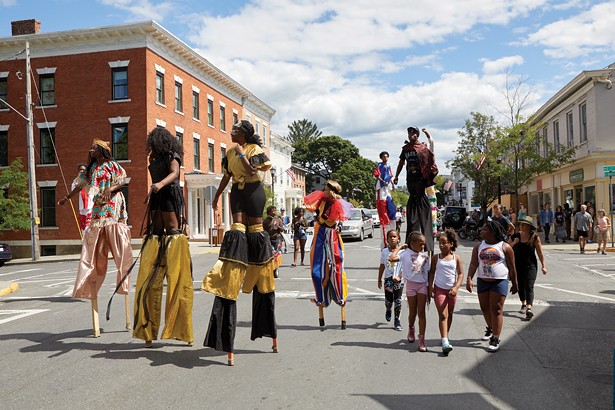
“Hudson is unique is because it’s a ‘mini city’ surrounded by an agricultural country setting,” says Mosely. “There’s been a lot of growth here, especially in the last 25 years. But part of what’s come out of that is that there’s a better foundation for young adults here, especially with the arts. The community support has grown, too, which is really good.”







